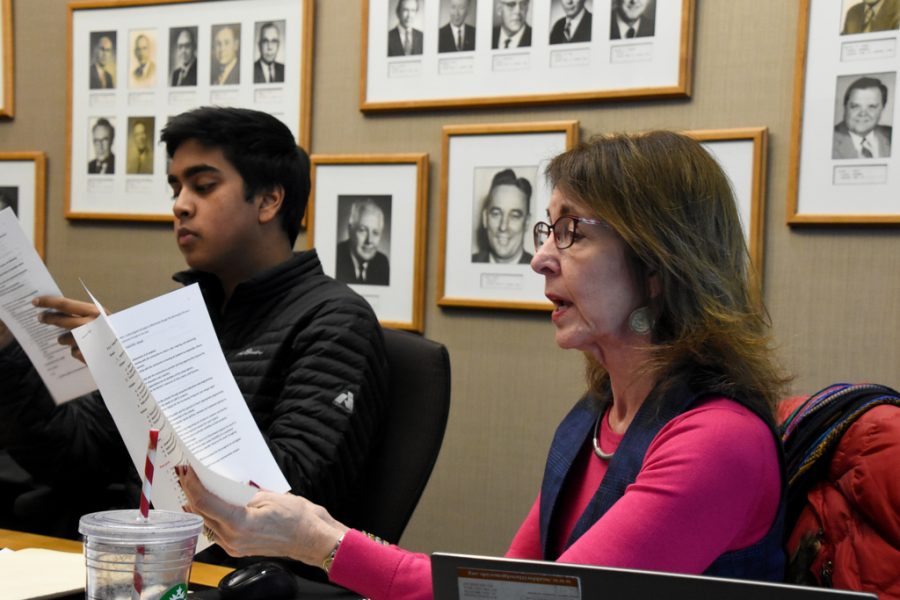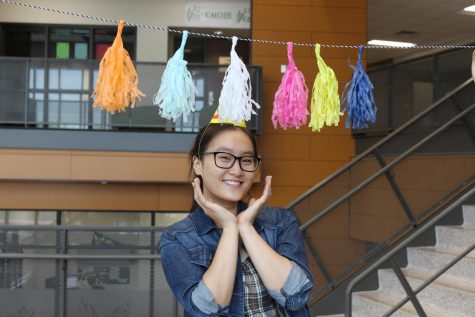Students Have Opportunity to Serve on City Boards and Commissions
Senior Prasoon Sinha participate in a meeting of the Human Rights and Relations Commission
January 8, 2018
Students searching for a volunteering experience like no other should look no further than the Advisory Boards and Commissions on the Edina City Council. These boards and commissions offer a unique opportunity for students by allowing them to participate in decisions that affect the entire Edina community. Serving on an advisory board or commission can give students insight into “the general operation of Boards and commissions, local government, and how a city is managed,” Project Coordinator for Edina City Council MJ Lamon said. It is rare to find a volunteer experience that can have such a large impact on one’s entire community.
There are eight boards that students can join. One of them is the Arts and Culture Commission, which works in collaboration with the Edina Art Center to foster a welcoming environment for artists in Edina and set up facilities and activities around Edina dedicated to art. The Energy and Environment Commission advises the City Council members on environmental protection, waste reduction, and conservation techniques. The Human Rights and Relations Commission works to enhance Edina’s awareness of human rights issues and aims to spread word on how people can make Edina a safer place for people of all backgrounds. Other commissions include the Community Health Commission, the Heritage PReservation Commission, the Park and Recreation Commission, the Planning Commission, and the Transportation commission.
The Edina City Council starting welcoming high schools onto their commissions and boards in order “to get the perspective of the younger generation, [and] strengthen the school and City’s relations,” Lamon said. When asked about what the students’ roles in these commissions is, Lamon said that “students participate in the same capacity as the regular adults.” Prasoon Sinha, a senior at Edina High School who is on the Human Rights and Relations Commission, said that he was able to help set up an event where guest speakers talked about their relations to family members who were victims in various genocides and help raise cultural awareness. Additionally, he was able to help organize a Human Rights Essay contest where people could talk about their experiences with discrimination around the community.
Students interested in being on a commission or board are required to complete an application and an interview. Applications generally become available in May and are open for about a month. In August, the city council announces which students have been appointed and holds an orientation for them. “The application process was really simple; it took me ten minutes at the most. The application mainly asks about your extracurriculars, which commission you would like to join, and why,” Tessa Yeager, a sophomore on the Transportation Commission, said. During the interview, the questions are mainly focused on “the extracurriculars [you] have done and why,” Yeager said.
However, don’t let the simplicity of the application fool you. Any student who has tried to apply can agree that the selection process is actually quite competitive. “We generally get 50 applications every year for 16 seats,” Lamon said. Sinha recommends that students play the application and interview to their strengths. For example, he “talked about debate and his background in India to play to those advantages because those were a great way for the interviewers to know who [he was] and how [he] finds human rights important.” Ultimately, students should look to expressing something that would set them different from others.
Due to high school students’ busy schedules, some will be daunted by the prospective time commitment. This problem is easily solved since “the meetings are once a month for almost all of the commissions, and are one to four hours,” Yeager said. Furthermore, since a term is only one year long, students are able to gain good experience even if they can only commit for a year. After that, they are able to see what being on a board is truly like and determine if they want to stay with the program.
To find more information, visit the Edina City Council’s website at https://www.edinamn.gov/678/Advisory-Boards-Commissions.


